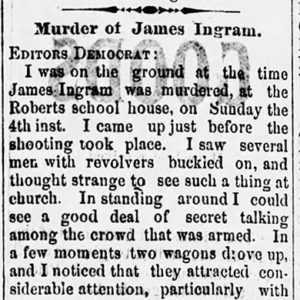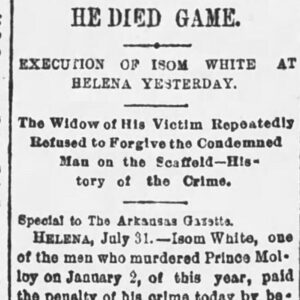Entry Category: Law - Starting with I
 James Ingram Murder Article
James Ingram Murder Article
Initiatives and Referenda
Intrastate Commerce Improvement Act
aka: Act 137 of 2015
Island 37
aka: Andy Crum (Lynching of)
aka: Bert Springs (Lynching of)
 Isom White Execution Story
Isom White Execution Story




